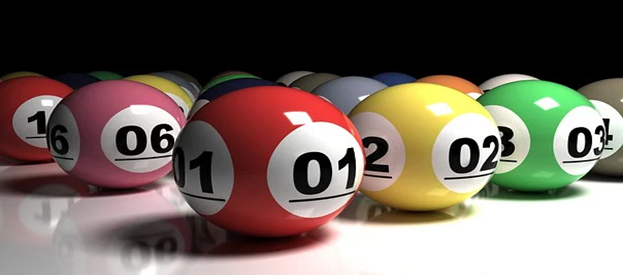1. Introduction to Poker and Common Mistakes
Poker, a game of skill, strategy, and psychology, has captivated players around the world for centuries. Whether you’re a beginner or an experienced player, it is crucial to understand the common mistakes that can hinder your success at the table. In this article, we will explore some of the most prevalent errors made by poker players and provide valuable insights on how to avoid them. By recognizing and rectifying these mistakes, you can enhance your gameplay, make better decisions, and increase your chances of winning in this thrilling and competitive card game. So, let’s dive in and learn how to steer clear of these pitfalls to become a more formidable poker player.
1. Introduction to Poker and Common Mistakes
Understanding the Basics of Poker
Poker, the game of skill and strategy, has captivated players around the world for centuries. Whether you’re playing with friends at home or in a high-stakes tournament, it’s essential to understand the basics. From the different hand rankings to the various betting rounds, knowing the rules is the first step towards becoming a successful player.
Why Understanding Common Mistakes is Important
They say we learn from our mistakes, and in poker, it couldn’t be more accurate. Recognizing and avoiding common pitfalls can dramatically improve your game. By identifying these blunders, you’ll be able to fine-tune your strategy, avoid unnecessary losses, and increase your chances of winning. So, let’s dive into some of the most prevalent mistakes that poker players tend to make.
2. Lack of Patience and Impulsive Decision Making
The Pitfalls of Impatience in Poker
In the fast-paced world we live in, patience can be a rare virtue. However, when it comes to poker, it’s an absolute necessity. Many players fall into the trap of impatience, eager to get into the action and play every hand. But rash decisions driven by impatience often lead to unfavorable outcomes. Remember, poker is a marathon, not a sprint. Take your time, be selective with your hands, and wait for the right opportunities to strike.
The Dangers of Impulsive Decision Making
Impulsiveness and poker are like oil and water – they just don’t mix. Making impulsive choices without carefully considering the odds and your opponents’ actions can be disastrous. It’s important to take a moment to analyze the situation, understand the potential outcomes, and make an informed decision. Don’t let your emotions or a sudden rush of adrenaline dictate your moves; instead, rely on calculated and rational thinking.
3. Ignoring Proper Bankroll Management
The Importance of Bankroll Management
Imagine going all-in with a significant portion of your bankroll on a single hand and losing it all. Ouch! That’s where proper bankroll management comes into play. Your bankroll is your lifeline in the poker world, and managing it wisely is crucial for long-term success. Set specific limits on how much you’re willing to risk, and never exceed those limits. By doing so, you’ll protect yourself from major financial setbacks and ensure that you can keep playing even during downswings.
Mistakes to Avoid Regarding Bankroll Management
One common mistake is playing at stakes that are too high for your bankroll. While the allure of big wins can be tempting, it’s important to play within your means. Another mistake is failing to separate your poker bankroll from your personal finances. Mixing the two can lead to reckless decision-making and potential financial troubles. Treat your poker bankroll as a separate business entity and manage it responsibly.
4. Failing to Pay Attention to Table Dynamics and Player Behavior
Understanding Table Dynamics
Poker is not just about the cards you hold – it’s also about the people you’re playing against. Table dynamics refer to the ever-changing nature of the game based on the players’ personalities, playing styles, and interactions. It’s crucial to observe and adapt to the dynamics at your table, as this can significantly influence your decision-making. Are there tight players who only play premium hands? Or aggressive players who bluff frequently? Understanding the dynamics will give you a strategic edge.
Common Mistakes in Analyzing Player Behavior
While reading opponents is an essential skill, it’s easy to misinterpret their behavior. Jumping to conclusions based on a single action or assuming that every bet is a bluff can lead to costly mistakes. Remember, players’ tendencies can vary, and what may seem obvious at first glance might be a well-executed deception. Take the time to pay attention to the subtleties, gather information, and make your decisions based on a comprehensive analysis rather than hasty assumptions.
In conclusion, avoiding common mistakes in poker requires discipline, patience, and a keen eye for detail. By steering clear of impulsive decisions, managing your bankroll wisely, and analyzing table dynamics and player behavior, you can elevate your game to new heights. So, sharpen your skills, trust your instincts, and above all, enjoy the thrilling journey that poker has to offer.
5. Overvaluing Weak Hands and Chasing Losing Hands
The Temptation of Overvaluing Weak Hands
Picture this: you’re sitting at a poker table, and you receive a hand that’s less than impressive. But for some reason, you find yourself emotionally attached to it, convinced that it has the potential to win big. This, my friend, is the temptation of overvaluing weak hands.
We’ve all been there, hoping for a miracle to turn our raggedy hand into a winning one. But the truth is, weak hands rarely do miracles. Overvaluing them can lead to poor decision-making, unnecessary losses, and a dent in your poker pride.
The Pitfalls of Chasing Losing Hands
You know that feeling when you have a losing hand, but you just can’t resist the urge to keep playing it? It’s like trying to catch a greased pig – you keep chasing, hoping to turn things around, but end up covered in mud.
Chasing losing hands is a common mistake that many poker players make. Whether it’s sticking around for one more card or going all-in on a whim, this behavior can quickly drain your bankroll and make you the laughingstock of the table.
6. Neglecting to Study and Understand Poker Strategy
The Importance of Poker Strategy
In the world of poker, strategy is king. It’s like having a secret weapon up your sleeve that gives you an edge over your opponents. Neglecting to study and understand poker strategy is like walking into a battlefield armed with a rubber chicken – you’re setting yourself up for defeat.
Poker strategy is not just about luck or intuition; it’s about making calculated decisions based on probabilities, psychology, and game theory. It’s about knowing when to fold, when to bluff, and when to go all-in. So, if you want to up your poker game, it’s time to hit the books and learn those winning strategies.
Mistakes in Neglecting Poker Strategy Development
We get it. Poker is supposed to be a fun game, and studying strategy may not be the most thrilling activity. But neglecting poker strategy development is a surefire way to stay stuck at the amateur level forever.
Imagine playing a game of chess without knowing the rules or any tactics. It would be like wandering aimlessly on a chessboard, waiting for your opponent to checkmate you. The same goes for poker. Without a solid understanding of strategy, you leave yourself vulnerable to more experienced players and miss out on opportunities to maximize your winnings.
7. Poor Positioning and Weak Hand Selection
The Significance of Position in Poker
Position, my dear poker enthusiast, is everything. It’s like having a backstage pass to all the action at a concert. Your position at the poker table determines the order in which you act, giving you crucial information about your opponents’ moves before you make your own.
Playing in early position means you’re the guinea pig, making blind moves without much insight into what others may do. On the other hand, playing in late position allows you to observe and react to your opponents’ actions, giving you a strategic advantage.
Common Mistakes in Hand Selection
When it comes to selecting starting hands in poker, it’s essential to resist the temptation of playing every hand that comes your way. Weak hand selection can lead to a world of trouble and a dwindling chip stack.
Sure, playing a hand like 7-2 offsuit might give you a thrill, but it’s more likely to lead to disaster than triumph. Knowing which hands to play and folding the rest is a skill that separates the amateurs from the pros. So, be selective, be patient, and save your energy for those hands that have a fighting chance.
8. Emotional Decision Making and Tilt Management
The Influence of Emotions on Poker Decisions
Ah, emotions – the bane of many poker players’ existence. When the game gets intense, it’s easy to let emotions cloud our judgment and influence our decisions. Suddenly, we’re making irrational bets, chasing losses, and falling into the dark abyss of poor decision-making.
Emotional decision making in poker is like trying to drive a car blindfolded – it’s a recipe for disaster. To succeed in poker, you need a cool, calm, and collected mindset that allows you to make rational choices based on logic and strategy.
Effective Strategies for Managing Tilt
Tilt, the destructive force that lurks in every poker player’s mind. It’s that moment when a bad beat or a string of losses sends you spiraling into a state of frustration, anger, and irrationality. But fear not, for there are strategies to manage tilt and keep your game on track.
Taking a deep breath, stepping away from the table, and reminding yourself that poker is just a game are all effective ways to combat tilt. Additionally, setting loss limits, analyzing your gameplay objectively, and practicing emotional resilience can help you keep tilt at bay. Remember, it’s not about the cards you’re dealt; it’s about how you handle the ups and downs of the game.In conclusion, being aware of and avoiding common mistakes in poker is vital for improving your overall game. By developing patience, employing proper bankroll management, paying attention to table dynamics, studying poker strategy, making careful hand selections, and managing your emotions effectively, you can elevate your poker skills to new heights. Remember, poker is a game of strategy and discipline, and by avoiding these common mistakes, you can set yourself on the path to success at the poker table. So, learn from these errors, practice diligently, and enjoy the thrilling journey of becoming a more skilled and savvy poker player. Good luck!
FAQ
1. Why is it important to avoid common mistakes in poker?
Common mistakes in poker can lead to unnecessary losses and hinder your progress as a player. By avoiding these mistakes, you can improve your decision-making, increase your chances of winning, and ultimately enhance your overall poker skills.
2. How can I improve my patience in poker?
Improving patience in poker requires discipline and practice. Start by recognizing situations where impatience might lead to poor decisions and consciously take a step back to assess the situation. Remind yourself of the importance of patience and the value of waiting for the right hands and opportunities.
3. What is bankroll management, and why is it crucial in poker?
Bankroll management refers to properly managing the money you have set aside for playing poker. It involves setting limits, determining buy-ins, and allocating funds in a way that minimizes the risk of going broke. Good bankroll management ensures longevity in the game and helps mitigate the impact of variance.
4. How can I manage tilt and prevent emotional decision making?
Managing tilt and preventing emotional decision making in poker is a key aspect of maintaining a strong mindset. Techniques such as taking breaks, practicing deep breathing exercises, and developing a solid understanding of variance can help you manage tilt. Additionally, focusing on the long-term and reminding yourself to make rational decisions based on logic rather than emotions can also be beneficial.








Facebook Comments